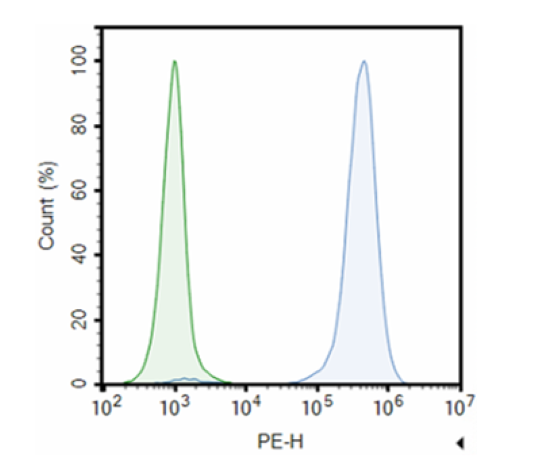LAIR1 CHO Cell Line
LAIR1 CHO Cell Line is a clonal CHO cell line stably expressing full-length human LAIR1 (leukocyte-associated immunoglobulin-like receptor 1) (NM_002287.6). Surface expression of LAIR1 was confirmed by flow cytometry. This stable clonal cell line was selected for high levels of LAIR1 expression compared to the parental CHO-K1 cell line.
Purchase of this cell line is for research purposes only; commercial use requires a separate license. View the full terms and conditions.
Media Required for Cell Culture
| Name | Ordering Information |
| Thaw Medium 3 | BPS Bioscience #60186 |
| Growth Medium 3J | BPS Bioscience #79974 |
The cell line has been screened to confirm the absence of Mycoplasma species.
LAIR1, also known as leukocyte-associated immunoglobulin-like receptor 1 or CD305 (cluster of differentiation 305) is an inhibitory receptor present in NK (natural killer) cells, T and B cells. In NK cells it binds to SHP-1 (Src homology 2 domain-containing protein tyrosine phosphatase 1) and SHP-2 phosphatases, resulting in inhibition of NK-mediated cytotoxicity. LAIR1 contributes to CD8+ T- cell exhaustion in cancer, by binding to collagen and suppressing T cell activity via SHP-1. The increased expression of collagen and LAIR1 in lung cancer patients is linked to a poor prognostic. In addition, patients that develop resistance to PD-1 (programmed death 1) inhibitor treatment present LAIR1 expression. The use of inhibitors that prevent the binding of LAIR1 to its ligand has been shown to increase anti-tumor immunity. Further studies are needed to fully elucidate the role of LAIR1 in cancer and develop efficacious therapies targeting LAIR1 alone or in combination with PD-1 inhibitors.
Meyaard L., et al., 1997 Immunity 7(2): 283-90.
Aung T., et al., 2023 Cancer Res Commun. 3(3): 471-482.


